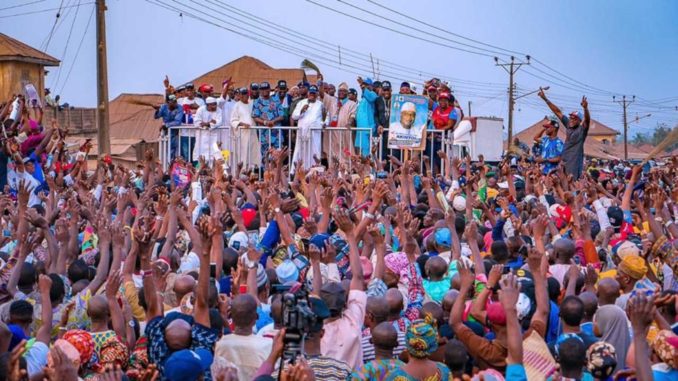
A country can only operate efficiently if it has a basic grasp of the number of people that exist within it. This is where democratic accountability begins. I do not believe the data from our last census, and I don’t think anyone else does either. Yet, this is the basis for our current population projections. It was last done in 2005. We are yet to update it. I often hear about independent studies, conducted as part of wider development initiatives that have produced estimates using technology that so wildly contradict the official data that is disputable. A problem exists. Now the United Nation (UN) says Nigeria has 201 million people!
We continue to confidently assert that our population is now over 180 million people. We are fond of double counting. A growth spurt in Kano is matched by a spurt in Lagos, and vice versa. The numbers are the base input to our political system, so we need to remove the arbitrary nature of their collection, and the political manipulation that comes with it.
Recently, the National Population Commission indicated that in 2015, it budgeted N220 billion (over $600 million) to conduct a census and that depreciation of the Naira, means that estimates in 2019 are likely to be much higher. I struggle with these numbers. I don’t believe that with modern technology and existing data collection, we cannot do this more efficiently, but I believe the price tag is a secondary concern that we can swallow. The important thing is that it is done, and done right.
Once we have a basic understanding of our population, we can effectively design solutions to our problems, and we can layer in all the wider data that we have to do so. There are warehouses full of the data we need to understand this country, just sitting in Abuja. Nigeria needs its own digitization project, to access the value in that data and we need to recognize that doing so serves ALL of our interests, not just the narrow political interests of a small group, whether ethnic, religious or any other. Our bureau of statistics has made major strides in the last decade, but it must be given the resources to make its function even more valuable to the nation. The more independent, valid data that we have in the public domain, the more difficult it is for our political class to distort or misrepresent it and the more effective our interventions will be. We cannot get good information with Garbage data.
Our census is deliberately used to mislead us, as a means to try and maintain the status quo between ethnic or regional groups. Can you imagine if we had an accurate one, and it showed that the Igbo outnumber the Hausas, or the Yoruba? What would the result be? Would we disintegrate in the way people fear? Let us remove the traditional regional tension from it. What about the Fulani and the Hausa? Would the disclosure of actual numbers affect the relationship between the two?
The South does not believe the figures produced for the North nor does the North believe those of the South. People generally say that in the North they travel from A to B, covering hundreds of kilometers and they saw no soul. Northerners say that Southerners lived near the roads and the rest of the places are thick uninhabited forests. We must counter these beliefs and substitute confidence in our census. The biggest political problem we have is this belief which has coloured every single relationship between the North and the South, between South South and South East, North West, North East and North central, South South and South West. Every political appointment is seen through these mirrors – how come “everything” is going to State A, zone B, or other? Power is dispensed through the prism of these divisions. It is healthy to have rivalry between states or even zones. But the progress of each area should be the infusion of developmental chromosomes not the spread of the cancer of envy and tribalism
Luckily, in this technological age, I am hoping that the enemies of progress, the zenophobists among us would not find a way to frustrate even the most arduous technological algorithm used in census.
I know what happened in the South South and in Lagos during the past census of 2005. I also know what happened in various parts of the North. None of the above activities was particularly edifying. There is no real advantage in inflating the numbers in your area because inevitably and eventually, you would be expected to use those numbers for production and growth. The era of all monies going to the Federal Government for disbursement to the states must inevitably end soon enough. The era of accountability is now upon us. This millennia generation would not have it any other way.
It’s a well-known fact that multiple different data sets, none of which inter-relate, have been gathered over the last decade. Our census, BVN, telecoms registration, our voter register, the national identity management system, our tax system and our passport office are just some of them, but they don’t talk to each other. We have to change that. The data in each of these places have the potential to transform our political systems, as well as our economy and so getting it right needs to be a national priority.
END

Be the first to comment